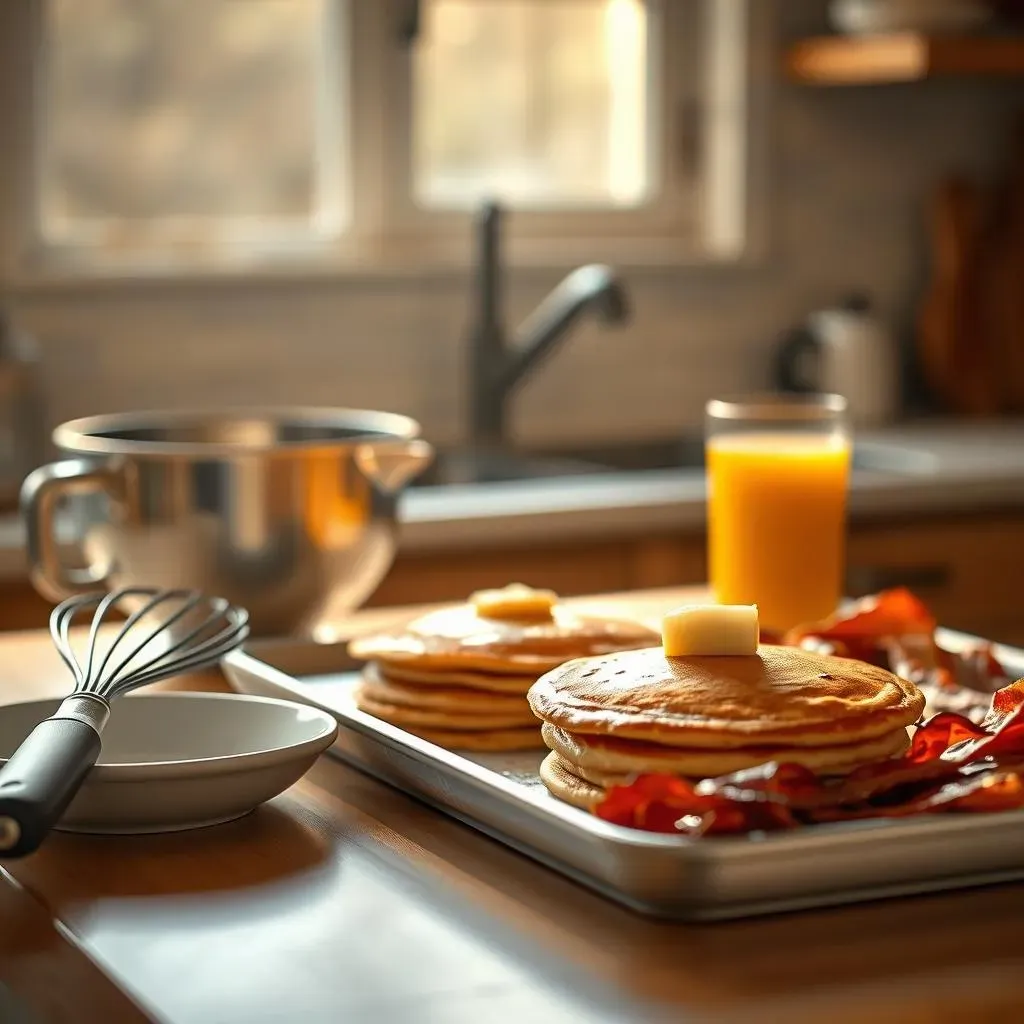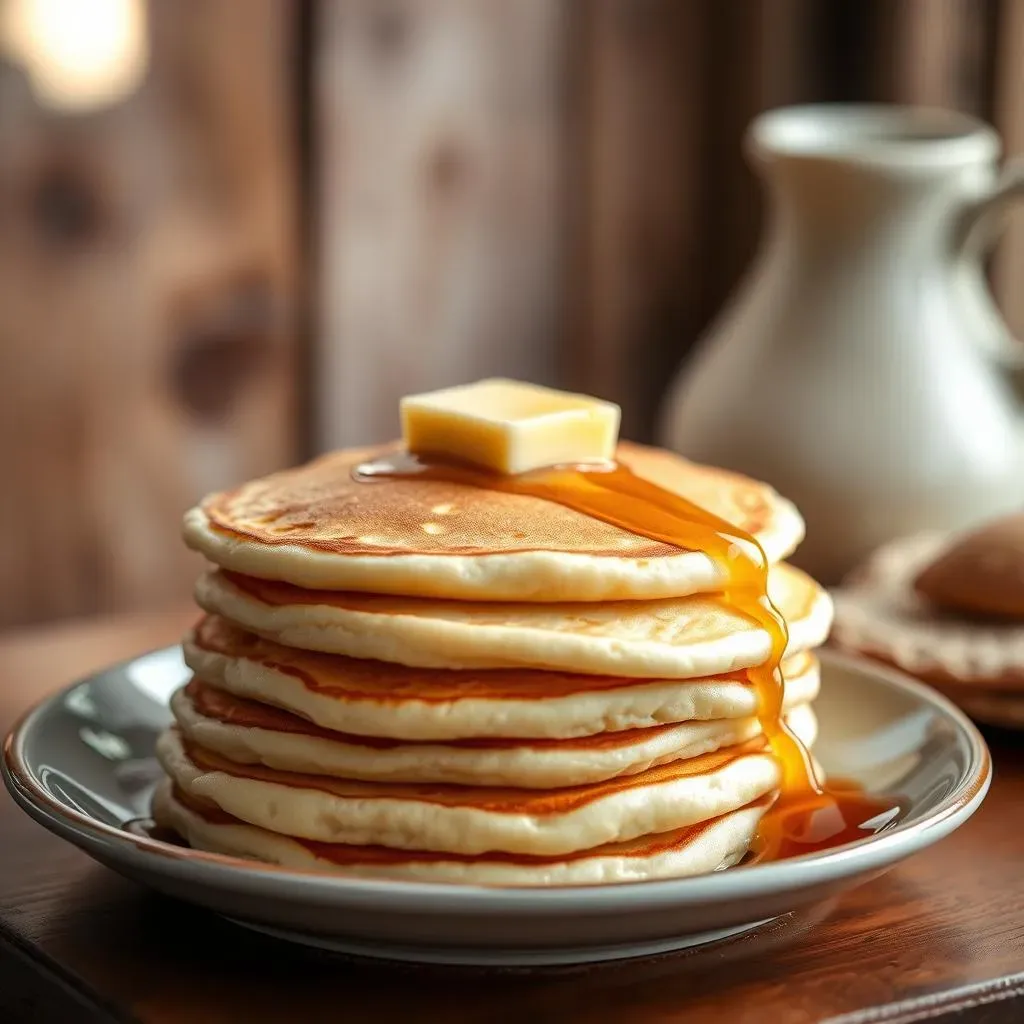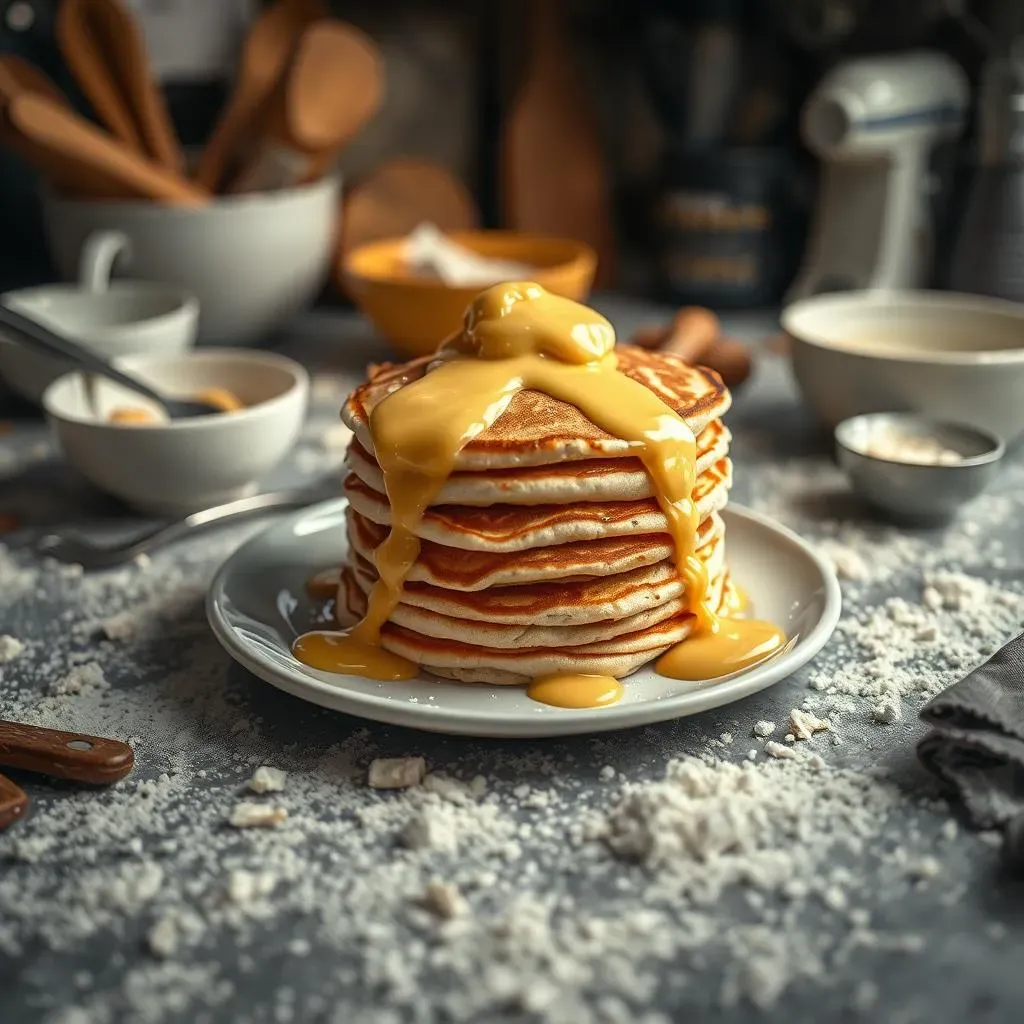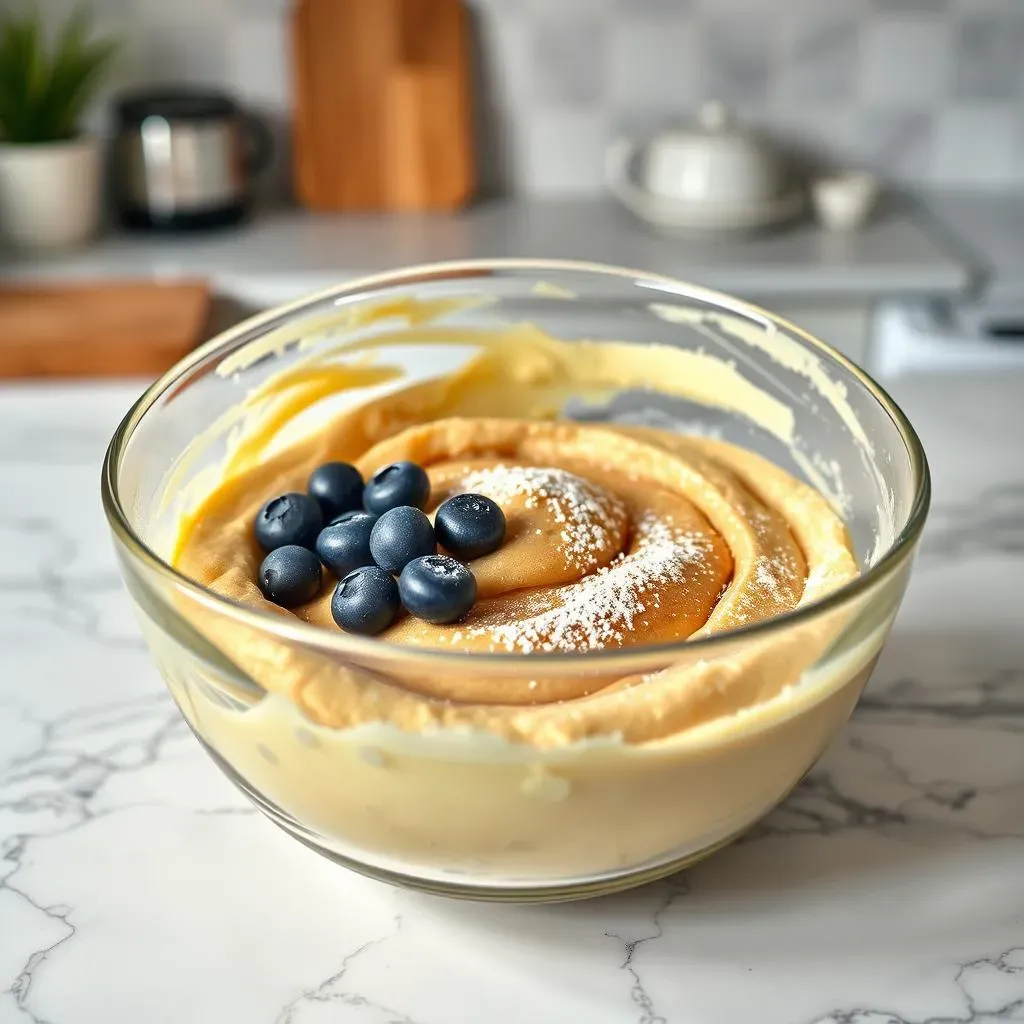Table of Contents
Ever wondered why your pancakes sometimes turn out flat and dense? The secret might just be in the resting game. The question "should pancake batter rest before using" is a common one, and the answer is a resounding yes. This isn't some fancy chef trick, it's a simple step that makes a world of difference. We're going to explore why this resting period is so crucial. We'll look at what actually happens to the batter while it sits, how long you should ideally wait, and what can go wrong if you skip this step. We'll also dive into some practical tips to ensure your batter is always ready to make the fluffiest, most delicious pancakes. Get ready to transform your breakfast game with this simple yet powerful technique, and finally answer the question of should pancake batter rest before using.
Why Resting Pancake Batter Is a Game Changer

Why Resting Pancake Batter Is a Game Changer
Okay, so you’re probably thinking, “Resting pancake batter? Seriously?” I get it. It sounds like one of those unnecessary steps some food snobs throw in, but trust me, this one’s legit. It's not about being fancy, it's about science, baby! When you mix flour with liquid, the gluten proteins get all excited and start forming these long, stretchy chains. Now, those chains make for tough pancakes, not the light, fluffy clouds we’re all dreaming of. Resting the batter gives those gluten chains a chance to relax, kinda like me after leg day. The flour also has time to fully absorb the liquid, which makes the batter more consistent. It's like letting the ingredients get to know each other better before they go on the griddle date. And that, my friend, is why resting is a total game-changer.
How Long Should You Rest Pancake Batter Before Using?

How Long Should You Rest Pancake Batter Before Using?
The Sweet Spot: Finding Your Time
Okay, so now you’re convinced resting is a must, the next question is, "how long should you rest pancake batter before using?". It’s not a one-size-fits-all answer, but generally, a minimum of 10 minutes is a good place to start. This gives the gluten a chance to chill out and the flour to soak up the liquid. I usually aim for 20-30 minutes, which I've found gives the best results. Think of it like marinating meat; a little time makes a huge difference in the final product. Don't stress about timing too much, a bit longer won't hurt, but avoid leaving it out for hours at room temperature. That's just asking for trouble.
Overnight Options: Planning Ahead
Sometimes, I like to be super organized and prep my batter the night before. If you’re going the overnight route, make sure to store it in the fridge. This slows down the gluten development even further and allows for an even better texture. When you're ready to cook, you might find the batter has thickened up a bit. That's totally normal! Just add a splash of milk or water to bring it back to the right consistency, you want a smooth, pourable batter, like thick cream. I love the convenience of overnight batter because it makes those weekend breakfasts a breeze. Just a quick stir, and you're ready to go.
Rest Time | Effect |
|---|---|
10-20 minutes | Good gluten relaxation, better hydration. |
20-30 minutes | Optimal texture improvement. |
Overnight (in fridge) | Maximum gluten relaxation, best texture. |
The Hour Limit: When to Use It
While letting your batter rest is beneficial, you also don't want it to sit around forever. Most experts recommend using the batter within an hour or two if it's at room temperature. After that, the baking powder can lose its oomph, which means your pancakes won’t rise as well. If you’re using an overnight batter, you’re fine for a little longer, but try to use it within 24 hours for the best results. Think of it like a race against time, you want to use the batter while it’s at its peak. So, plan accordingly and get ready to enjoy some seriously delicious pancakes.
What Happens if You Don't Rest Your Pancake Batter

What Happens if You Don't Rest Your Pancake Batter
Tough and Chewy Pancakes
Alright, let's get real. What happens if you're impatient and skip the resting? You'll end up with pancakes that are, well, not great. Remember those gluten chains we talked about? If you don’t give them time to relax, they stay all tense and tough, resulting in pancakes that are chewy and dense instead of light and fluffy. It's like trying to build a house with unmixed concrete; it's just not going to work out the way you want it to. So, if you're after that melt-in-your-mouth texture, resting is non-negotiable.
Uneven Texture and Rise
Another thing you'll notice if you don't rest your batter is that the texture and rise will be all over the place. The flour won't have had enough time to properly absorb the liquid, which means you can end up with pockets of dry flour in your pancakes. This leads to an uneven cook and an inconsistent texture, some parts might be gummy, while others are dry. It’s like a pancake lottery, and you’re probably not going to win. Plus, the baking powder doesn't get to activate as effectively, so your pancakes won’t puff up as much. It's a real tragedy, I tell you!
- Tough and chewy texture
- Uneven cooking
- Inconsistent rise
- Pockets of dry flour
Less Flavorful Results
Finally, skipping the rest can even affect the flavor of your pancakes. When the batter sits, the flavors have a chance to meld together and deepen. It's like letting a good stew simmer, the flavors really get to know each other. Without that resting time, the pancakes just don’t taste as good, they can taste a bit bland. It's a small detail, but it makes a big difference. Trust me, your taste buds will thank you for being patient. So, while it might be tempting to rush, giving your batter that rest will result in a far superior pancake.
“Patience is a virtue, especially when it comes to pancake batter." - Some Wise Pancake Lover
Tips for the Best Pancake Batter Results When Resting

Tips for the Best Pancake Batter Results When Resting
Okay, so you're on board with the whole resting thing, great! Now, let's talk about how to really nail it. First off, don't overmix your batter. When you're combining the wet and dry ingredients, mix until just combined, it should still look a little lumpy. Overmixing develops too much gluten, and we're trying to avoid that. Also, make sure your ingredients are at room temperature. Cold ingredients can slow down the hydration process, and we want everything to play nice. And finally, always cover the batter while it’s resting. This prevents it from drying out and forming a weird skin on top. Trust me, these small details make a big difference in your final pancake masterpiece.
Another trick I've learned is to adjust the liquid if needed. Sometimes, the batter thickens up a lot while resting, especially if you’re using a high-protein flour or letting it sit overnight. Don’t be afraid to add a splash of milk or water to get it back to that smooth, pourable consistency. You want it to be thick enough to hold its shape but thin enough to spread easily on the griddle. And here's a little pro tip: if you're using buttermilk or any acidic ingredient, the resting time is even more crucial. It gives the acid time to react with the baking powder, which leads to extra fluffy results. So, keep these tips in mind, and you’ll be flipping out some seriously amazing pancakes.
Tip | Why it Works |
|---|---|
Don't Overmix | Prevents excess gluten development. |
Room Temp Ingredients | Ensures proper hydration. |
Cover While Resting | Prevents drying out. |
Adjust Liquid as Needed | Maintain the right batter consistency. |
Lastly, let’s talk about flavor. While the batter is resting, you can sneak in some extra flavors. A dash of vanilla extract, a pinch of cinnamon, or even some lemon zest can really elevate your pancakes. I sometimes like to add a bit of melted butter to the batter, it adds a richness that’s just divine. It’s all about experimenting and finding what you love. And remember, resting the batter isn't just about texture; it’s about letting those flavors meld together and get to know each other. So, don't be afraid to play around and find your perfect pancake recipe. The kitchen is your canvas, go create some magic!
The Final Flip: Resting Your Way to Pancake Perfection
So, should pancake batter rest before using? Absolutely. It's not just some old wives' tale; it's a crucial step that transforms your batter from a simple mix to a fluffy pancake powerhouse. By understanding the science behind the rest – the hydration, the gluten relaxation, the even rise - you can elevate your pancake game. Skipping the rest might save you a few minutes, but it'll cost you in texture and taste. So, next time you're whipping up a batch, remember, a little patience goes a long way. Let that batter chill out, and you'll be rewarded with stacks of the most amazing pancakes you've ever made. Happy flipping!